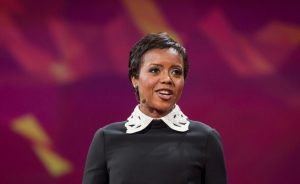The Cancer Outcomes Research Program is collectively outraged and profoundly troubled by the recent murders of Ahmaud Arbery, Breonna Taylor, George Floyd, and others. We are also deeply disturbed by the police shooting of Jacob Blake last week and subsequent events that resulted in three more shootings—two fatal—at the hands of a 17-year-old wielding an assault-style rifle. Moreover, we are shocked and saddened by the untimely death on Friday of Chadwick Boseman, brilliantly talented actor of “Black Panther” and “42” fame, who paved a new, wider, more inclusive path for American cinema and whose light was extinguished by Stage IV colon cancer. Chad was from my (Stephanie’s) hometown of Anderson, SC, and his father worked in a textile factory like my grandmother. He was beloved by everyone who knew him and his exceptional work. That he died from advanced colon cancer at such a young age, that he represents what we have known from the data for years—that black communities shoulder a disproportionate burden of cancer—should be a call to action for all of us.
These recent events, coupled with the stress of COVID-19 and the economic recession, are hitting everyone hard, but we acknowledge and affirm that these events disproportionately harm communities of color—underscoring more than ever the urgent need for action in how we address systemic racism as a society and as an academic community.
Our Cancer Center has taken actions to better understand and address systemic racism within the academic system, in coordination with similar efforts undertaken by the Schools of Medicine, Public Health, Nursing and Pharmacy. The Center has hosted Racial Equity Institute Groundwater training sessions, with another event upcoming in November, and is developing an Equity Council that will assess existing LCCC programs and policies and make recommendations about how to improve diversity, equity, and inclusion at our institution. Senior staff members also read and discussed the book “White Fragility: Why It’s So Hard for White People to Talk About Racism”, by Robin DiAngelo, and continue to engage in self-education and focused discussions about race and racism.
However, while we do this important work, we must acknowledge that it is not enough. We believe it is also the CORP’s responsibility to be part of the solution and change that is needed to dismantle structural racism at our institution and in our community. We are proud to stand in solidarity with our colleagues of color, and are committed to:
- making principles of health equity and diversity and inclusion part of every training effort we support
- increasing research to improve the health of communities of color
- engaging communities of color in the entire lifecycle of research, from conceptualization to dissemination
- increasing representation of people of color in all research studies and especially clinical trials
- providing advancement and leadership opportunities for scholars of color (stay tuned for an important announcement coming soon about this!)
We cannot do this work alone- we must all work together and take responsibility for the change that is so urgently needed. We welcome any and all input from the members of our program about how best we can be a positive force for change, not only for our colleagues, friends and family members of color, but also for the next generation. We are planning to send out a short survey in the next few months to collect ideas and feedback from you on ways to build an equitable and inclusive culture. We also intend to host a community forum to gather input on this topic. In the meantime, feel free to reach out to us with thoughts and concerns.
Stephanie, Ethan, and Matt
Resources
Below are a few resources for those wishing to gain more information and perspective on racial equity at UNC and beyond:

AcaDames Podcast S3Ep14
CORP member Whitney Robinson leads conversation with Sarah Birken about systemic racism in US broadly and academia particularly in wake of George Floyd’s murder and subsequent protests.

On supporting early-career Black scholars
Nature Human Behavior (2020)
Epidemiology PhD candidate Mya Roberson makes suggestions on how non-Black scientists can support Black early-career researchers
UNC Center for Health Equity Research: Equity Statement and Resources
UNC Office of Diversity and Inclusion Anti-Racism Resources
Racial Equity Institute Groundwater and Phase 1 Workshops
National Museum of African American History and Culture- Talking about Race
University of Michigan School of Public Health: Microaggressions Table
